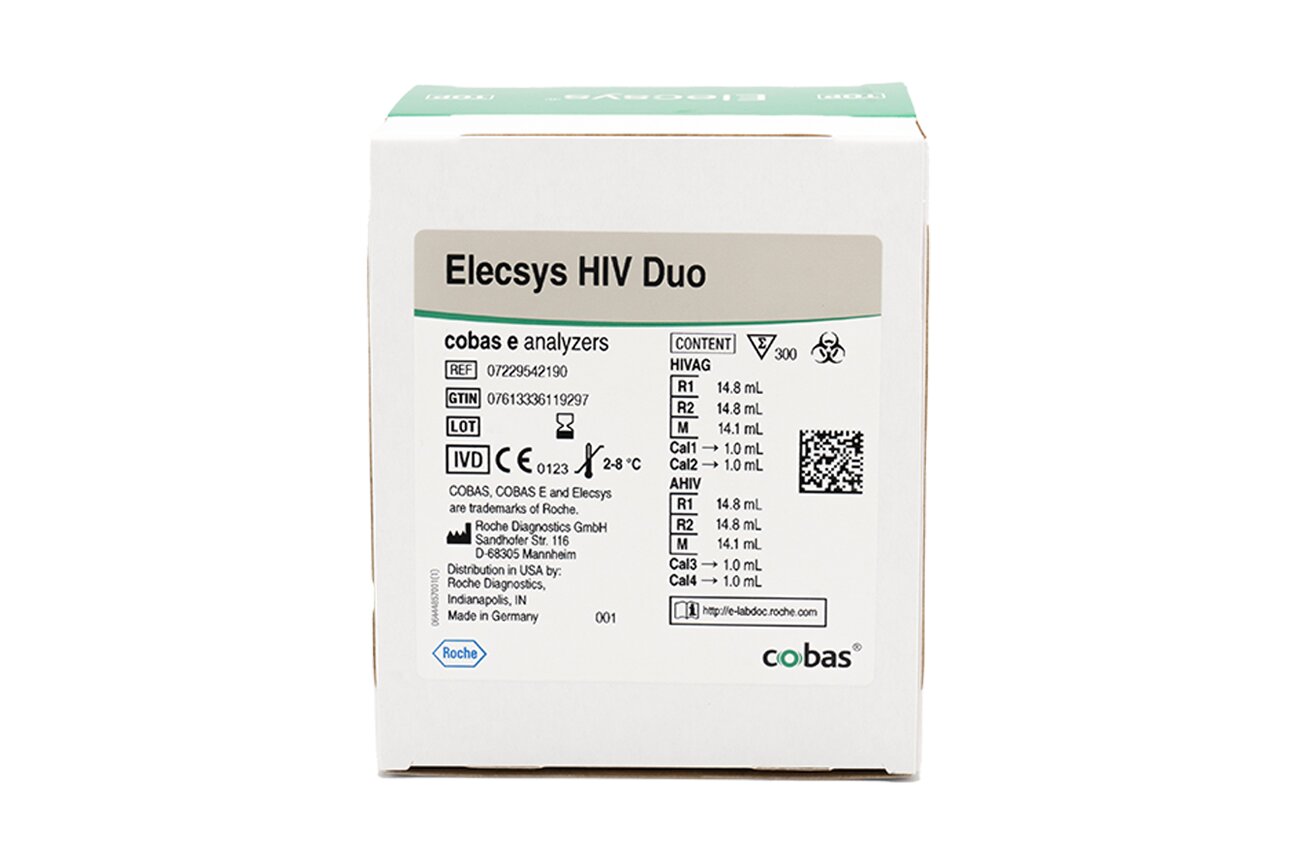Bringing safety, reliability and efficiency to donor screening
Roche Diagnostics serology instruments and assays can be used to perform a broad range of immunoassays and offer various options to suit your throughput needs.
Roche Elecsys® assays include highly specific and sensitive serology tests to detect infectious diseases. Serology tests are based on ECL (ElectroChemiLuminescence) technology and delivers reliable results.1-10 All serology screening assays detect the major viral genotypes and variants found worldwide. They show very high seroconversion sensitivity, and their very high specificity and clear cut-off separation of positive and negative results reduces the need for retesting.1-10
Please contact your local Roche representative regarding the availability of the Roche Blood Safety Solutions portfolio.
Featured products
Benefits of serology testing solutions from Roche
Helping ensure patient safety during blood transfusions
Roche offers state-of-the-art assays and pioneering sample automation with ready-to-use reagents for safe blood and plasma products including serology instruments that provide:
- Comprehensive variant coverage to help ensure reliable detection of infectious samples1-10
- Excellent sensitivity to allow for detection of early infections1-10
- Automated sample handling that reduces the risk of manual handling errors
Supporting a consistent and reliable blood supply
Reliable results are essential for maintaining the integrity of blood safety testing. To achieve this, the technology behind your serology instruments must deliver correct and consistent outcomes every time.
Our serology analysers and Elecsys® immunoassays and technology offer great quality in blood screening, including:
- The timely release of blood products with cobas® instruments that optimise uptime (>99,2%)11
- Validated workflows for cross-contamination compliance12
- Assurance in service with skilled local Roche support teams available when you need them
- Immunoassays that use electro-chemiluminescence (ECLIA) allowing for rapid measurement, wide measuring range, controlled reaction, high precision, sensitivity, and low sample volume
- Technology that uses recombinant antigens
Contributing to blood safety with high-specificity assays and full automation
In blood testing, the specificity of assays is critical for accurate virus detection. Assays with low specificity can lead to a higher number of false positive results, and these inaccuracies can cause significant delays in the release of blood donations. Roche’s high-specificity assays help prevent the unnecessary wastage of blood products and the potential loss of valuable donors. Roche’s serology testing solutions provide:
- High-specificity assays that provide accurate results from the outset, avoiding costly reruns, reducing blood product waste, and retaining donor trust and participation
Full automation so that laboratories can operate more efficiently and productively, allowing staff to focus on other value-adding activities while the automated system handles routine processes
- Advanced features like sample transportation and intelligent routing significantly reduce the risk of human error, such as incorrect sample labelling or mishandling during transit. This means the likelihood of retests is minimised, enhancing efficiency and reliability
References
- Mühlbacher, A., et al. (2013). Med Microbiol Immunol 202, 77–86.
- Mühlbacher, A., et al. (2008). Med Microbiol Immunol 197, 55–64.
- Esteban, J., et al. (2013). J Med Virol 85, 1362–1368.
- Ly, T.D., et al. (2012). J Clin Virol 55, 121–127.
- Louisirirotchanakul, S., et al. (2010). J Med Virol 82, 755–762.
- Jia, J.D., et al. (2009). Med Microbiol Immunol 198, 263–269.
- Laperche, S., et al. (2017). J. Clin. Microbiol 55, 2180-2187.
- Kremastinou, J., et al. (2016). J. Clin. Microbiol 54, 2330-2336.
- Sommese, L., et al. (2014). Scandinavian Journal of Infectious Diseases 46, 660–664.
- Schmidt, M., et al. (2015). Vox Sanguinis 109, 114-21.
- Data on file. Roche Diagnostics International Ltd.
- Data on file. Roche Diagnostics International Ltd.
- Roche. (2016). Declaration of Serology and NAT testing compliance. | Iordanoaia, N., et al. (2016 September). Cross-contamination Compliance of cobas p 612 pre-analytical system in use with cobas® 6800/8800 Systems. Poster presented at ISBT, Dubai, UAE.

